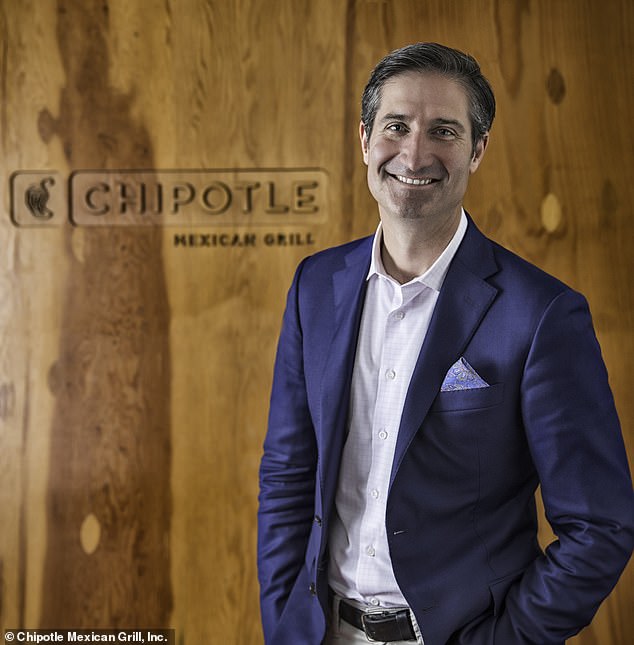The recent controversy surrounding the new Starbucks CEO and his 1,000-mile private jet commute has shone a light on the lavish perks enjoyed by corporate leaders. While Brian Niccol's deal includes a potential £88 million in financial rewards and the option to work from his California home twice a week, the perks enjoyed by UK company bosses, though less extravagant, are still eye-watering.
An annual audit of the rewards given to FTSE 100 bosses has revealed a host of benefits, on top of their multi-million pound salaries, pensions and bonuses, that are likely to cause outrage among shareholders, customers and lower-ranking staff.
The average FTSE 100 CEO now earns £4.7 million, and the audit explored the additional perks that come with being part of the boardroom elite. These benefits, which must be disclosed under stock market rules, can amount to hundreds of thousands of pounds on top of a director's salary and bonus.
Common perks include employer pension contributions, car allowances and private medical insurance for executives and their families. These are fairly standard for senior managers in many businesses. However, it's the "special perks" that set chief executives and finance directors apart, such as allowances for their partners, travel expenses, financial assistance with tax returns, relocation assistance and home security costs.
Coca-Cola HBC, for example, has provided its £4.7 million-a-year CEO, Zoran Bogdanovic, with £320,000 in "cost of living and foreign exchange rate adjustment" benefits last year. This adds to over £820,000 in "cost of living" benefits he has received in the past three years. He also enjoys a "home trip allowance" of £2,250, a "partner allowance" of £847, and £90,000 in housing support.
Former Burberry CEO, Jonathan Ackeroyd, received a £50,000 "cash allowance" - a sum that many would consider a good annual salary. This was in addition to £110,000 in benefits, including £15,000 for private medical insurance, £17,000 for life assurance, £21,000 for long-term disability cover and £2,000 for tax and legal advice. Ackeroyd, who earned just under £1.35 million in total last year, left Burberry earlier this summer after the luxury brand issued a profits warning and announced job cuts.
The concept of "hybrid working" isn't just a perk for ordinary employees. Frank van Zanten, the £6.3 million-a-year boss of distributor Bunzl, received a £269,000 "hybrid working allowance" last year, covering ad hoc secretarial services, IT support, travel, a driver and extra security in certain locations. This allowance increased by 15% in 2023, mainly due to higher travel costs.
Housebuilders also offer unique perks to their executives. Jennie Daly, Taylor Wimpey's £2.2 million-a-year CEO, is entitled to a 5% employee discount on the purchase of a home. This allows her to buy one home per year, with a limit of no more than three properties over five years and a maximum discount of £100,000. Daly hasn't used this perk, but her predecessor, Pete Redfern, purchased four discounted properties in Spain and the UK.
Relocation expenses, particularly for executives recruited from overseas, can be significant. Barclays paid relocation costs totalling £148,000 annually, or £6,167 per month, for its CEO CS Venkatakrishnan for two years. This included "temporary accommodation" in London, "immigration assistance" and income tax and social security payments linked to his move.
While private jets are increasingly seen as excessive, the perk of a chauffeur-driven car is still common. John Pettigrew, CEO of National Grid, enjoys a £71,000 allowance for the use of a car and driver, included in his £6.4 million pay package. Other executives with chauffeurs include Ken Murphy at Tesco, Noel Quinn at HSBC, former BT chief Philip Jansen and British American Tobacco's Tadeu Marroco.
Aston Martin, whose shares have fallen by over 50% in the past 12 months, paid its former boss Amedeo Felisa £1.3 million for private jet travel between Italy and the UK. Felisa also received an annual £50,000 allowance for board and lodging while away from his home in Italy.
While the perks enjoyed by top executives may be viewed as extravagant and even unfair, they raise questions about the nature of corporate leadership and the value placed on specific skills and experience. As the cost of living continues to rise, the disparity between executive compensation and the average worker's pay is likely to remain a source of debate.
Article
Business

Fat Cat Perks: £50k Pocket Money, Private Jets, & Security Guards at Home

